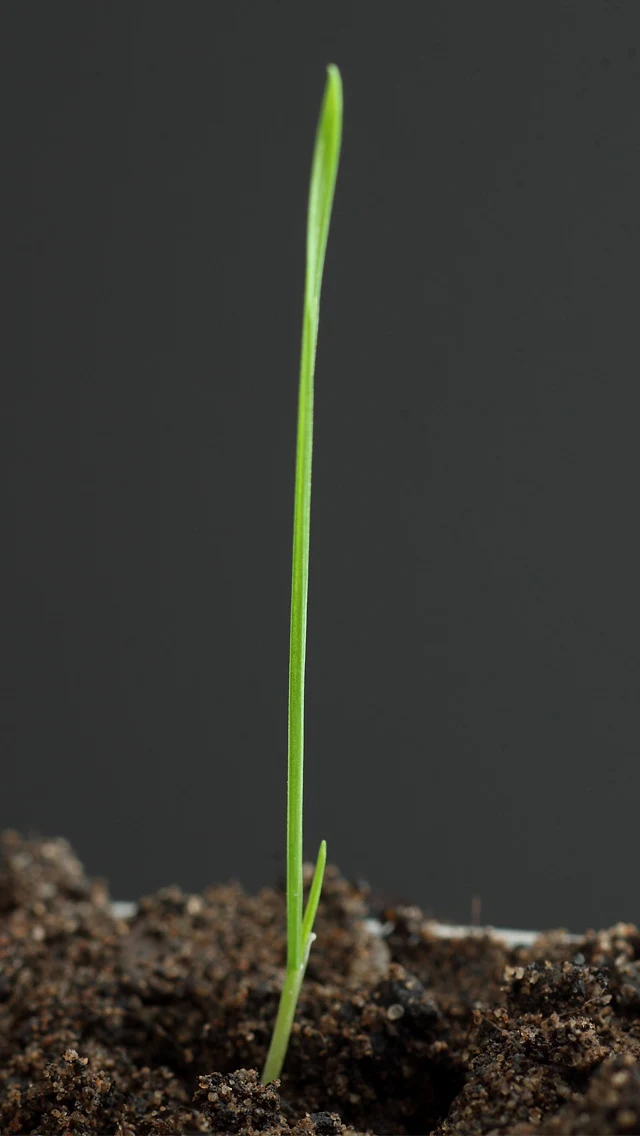
Onion couch/False oat-grass
Arrhenatherum elatius
Auricles
Absent
Importance
False oat-grass is very common in grassland and in hedgerows throughout the British Isles. The onion couch variant is a more localised problem, generally in loams of more open texture. Once present it is very difficult to totally eradicate as each root nodule can develop into a new plant and they are very resistant to dry conditions.
Leaf blade
Long, narrow, rough and sparsely hairy above, or hairless.
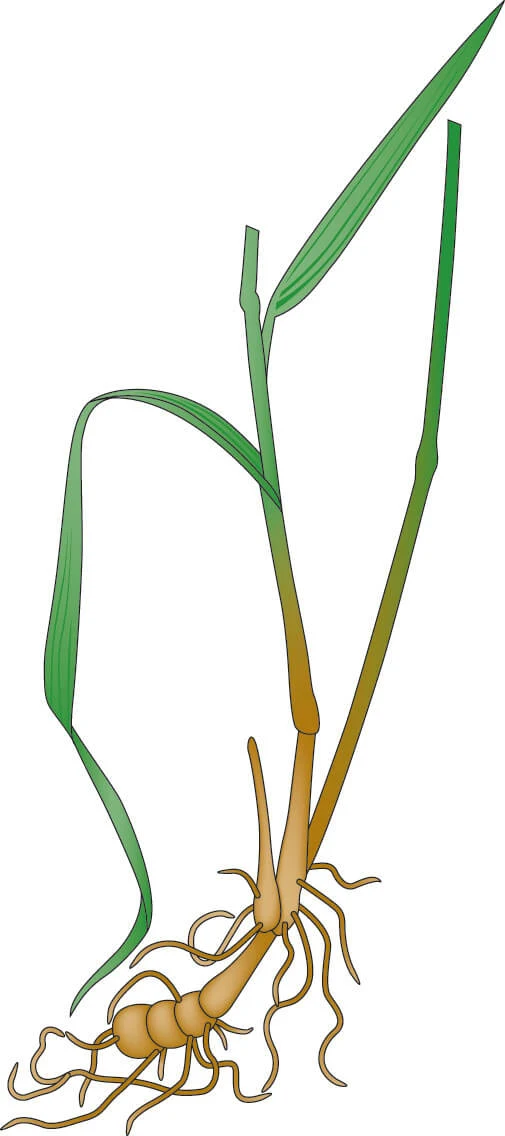

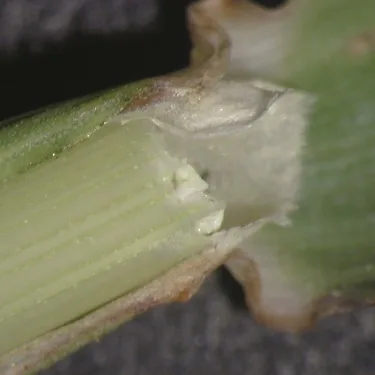
Onion couch/False oat-grass ligule. Photo © HGCA.
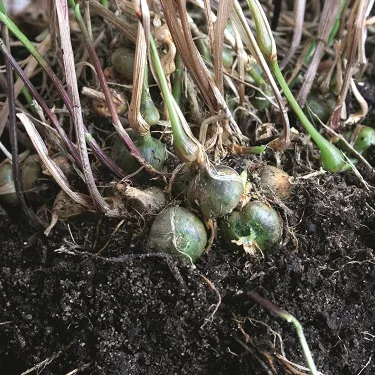
Onion couch with distinctive swollen bulbous nodules at base of stems. Photo © Blackthorn Arable.
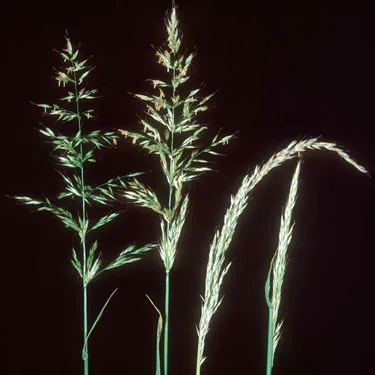
Onion couch/False oat-grass flower heads. Photo © Nigel Caittlin/Alamy.
Ligule
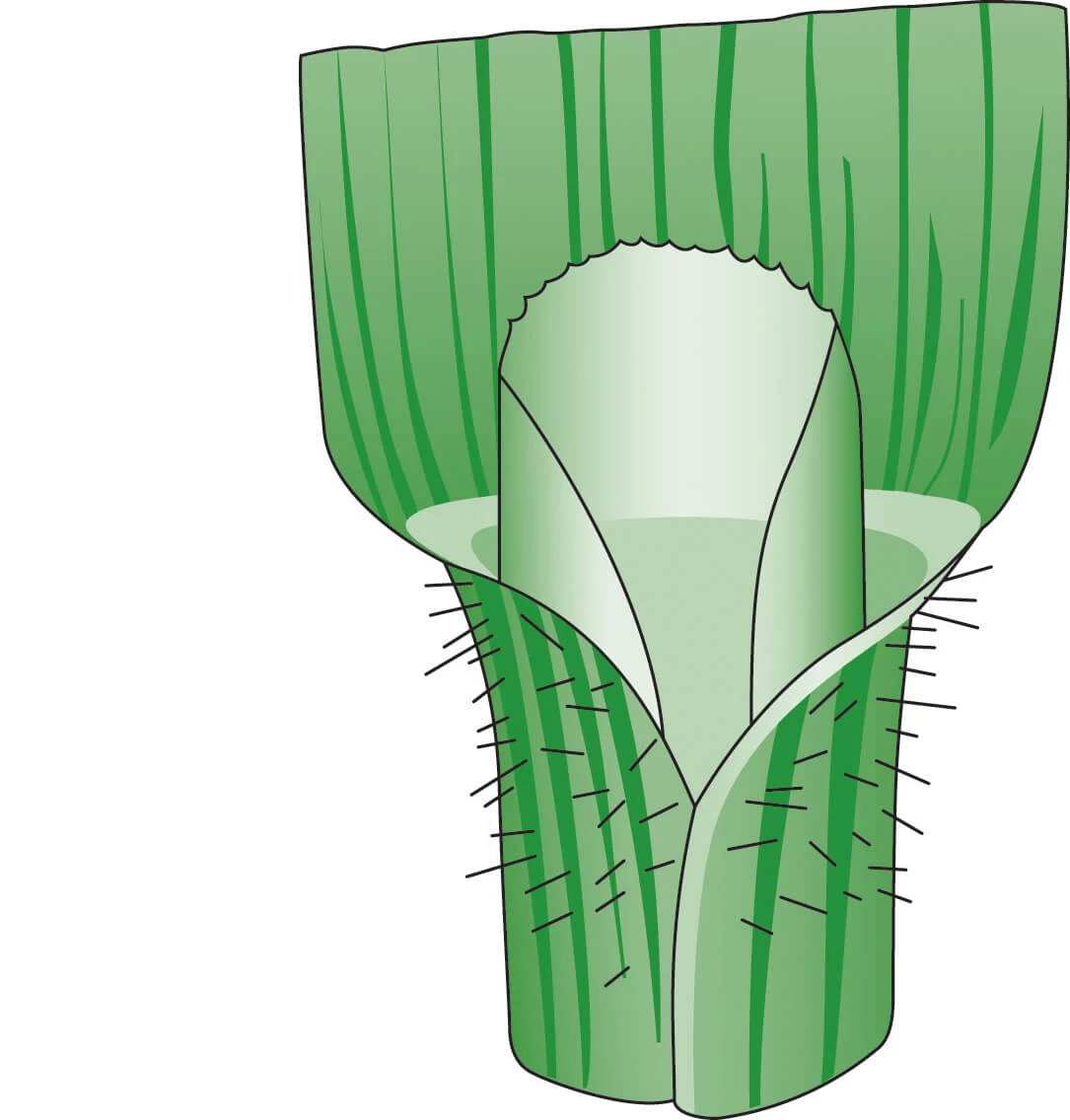
Short to medium: up to 3 mm.
Description
Very tall perennial 60-150 cm. Swollen bulbous nodules at the stem-base indicate the onion couch variety of false oat-grass. Panicle is like miniature wild oat head but more upright condensed and narrow.
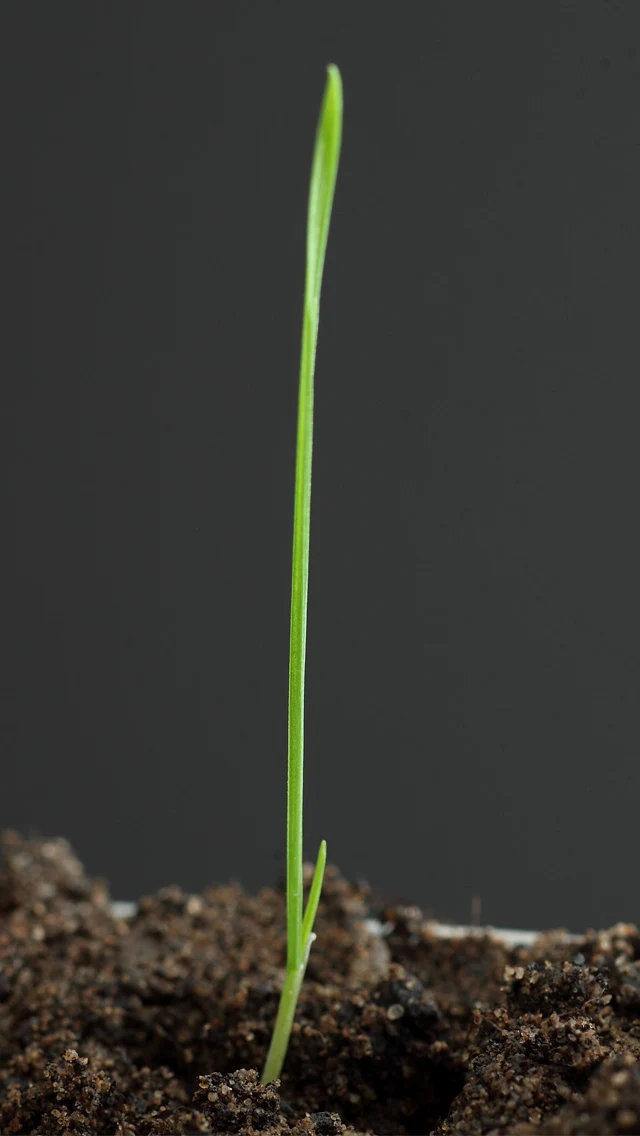
Young onion couch © Blackthorn Arable
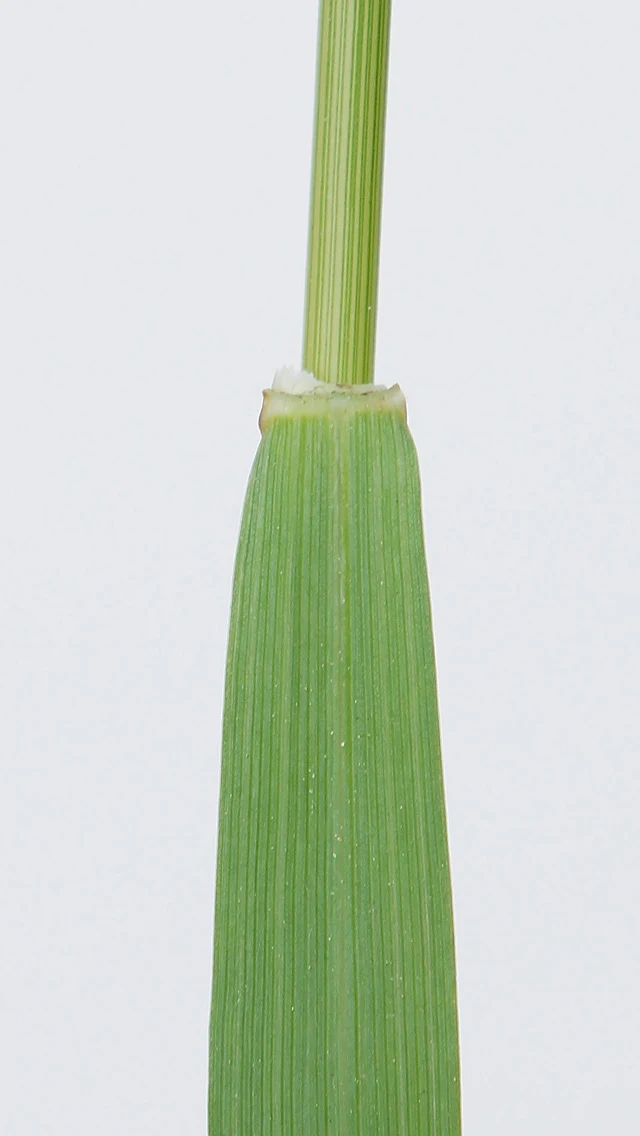
Ligule © Blackthorn Arable.
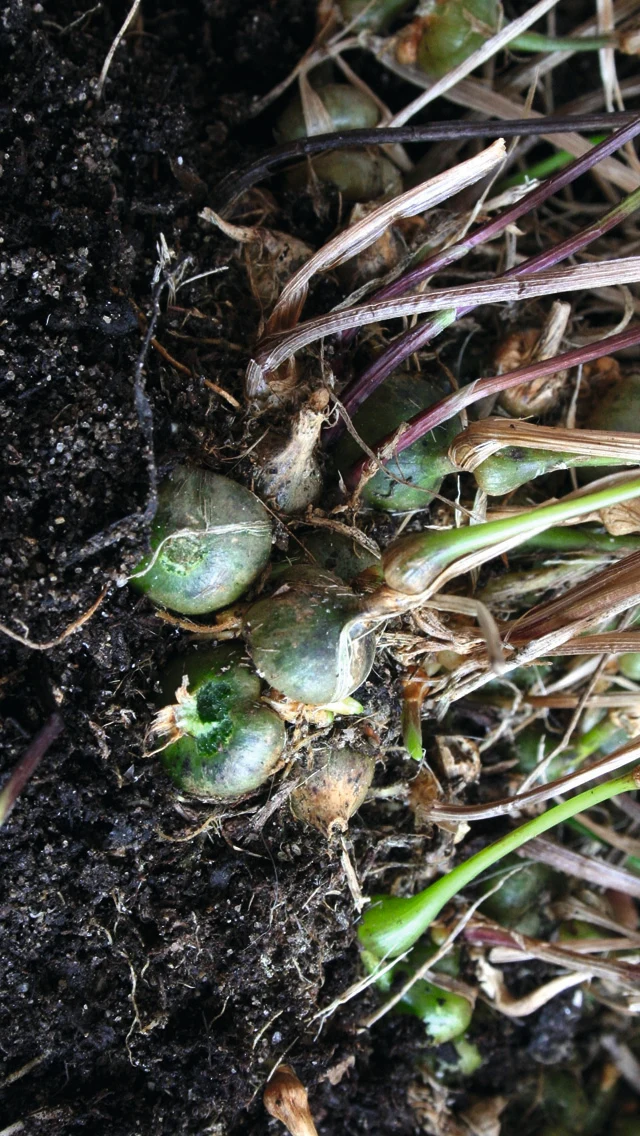
Onion couch with distinctive swollen bulbous nodules at base of stems. © Blackthorn Arable.


